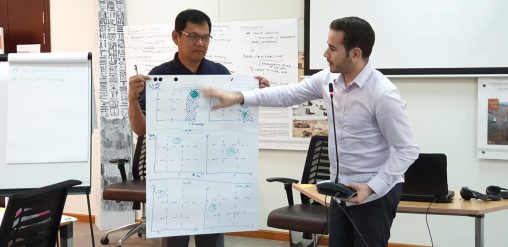
International Journal of Management Education, 100432. Covid-19 and entrepreneurship education: Implications for advancing research and practice.

The Handbook of Mentoring at Work: Theory, Research, and Practice. Social Research Methods: Qualitative and Quantitative Approaches (Seventh Ed). Experiential Learning Model on Entrepreneurship Subject to Improve Students’ Soft Skills. R., Dinanti, A., Krisnaresanti, A., & Article, H. Mentoring an entrepreneur: Guide for a mentor. Journal of Entrepreneurship Education, 21(2), 1–5. A brief review on startup mentoring in higher education in Ecuador. Mátyás, B., Soriano, B., Carpio, I., & Carrera, P. The emergence of entrepreneruship education. Using e-mentoring to sustain distance training and education. In Journal of Social Work Education (Vol. Recognizing and valuing our roles as mentors. 30 years after Bayh-Dole: Reassessing academic entrepreneurship. Advances in Developing Human Resources, 7(4), 470–488. Whose Best Interests Are Served? The Distinction Between Mentoring and Support. Educational Administration Quarterly, 40(4), 518–540. Formal mentoring programs in education and other professions: A review of the literature. Journal of Management and Entrepreneurship, 1(2), 56–54. Peran Mentor Untuk Menjaga Keberlangsungan Bisnis Mahasiswa Universitas Ciputra. Journal of Research in Innovative Teaching & Learning, 10(1), 34–47. The role of the university in accelerated learning and innovation as a regional ecosystem integrator. Ĭeluch, K., Bourdeau, B., Khayum, M., & Townsend, L. What makes student entrepreneurs? On the relevance (and irrelevance) of the university and the regional context for student start-ups. Englewood Cliffs, NJ: Prentice-Hall, Inc.īergmann, H., Hundt, C., & Sternberg, R. Social Foundations of Thought and Action: A Social Cognitive Theory. Strategi Pembelajaran Kewirausahaan Untuk Membentuk Wirausaha Tangguh Dan Berdaya Saing Tinggi - Prosiding RIEE 2016, 1, 72–80.īandura, A. Analisis Manfaat Mentoring pada start up business.

Determinants of student entrepreneurship. Journal of Small Business Management, 56(1), 76–102. From Student to Entrepreneur: How Mentorships and Affect Influence Student Venture Launch. The study also provided recommendation for improving mentoring program, the need for careful design and implementation of pre-mentoring activities (mentor allocation and mentor training) and post-mentoring activities including mentor evaluation.Īhsan, M., Zheng, C., DeNoble, A., & Musteen, M.

The mentoring activities had given a positive contribution to day-to-day student start-up business operations.

Both mentor and mentee had adjusted their effort to resolve the challenges. Due to the covid19 pandemic, some challenges emerged in business execution and the paper writing process. Mentors had settled their role as facilitators, counsellors, and assessors through mentoring activities. Findings identified digital platform used for virtual mentoring varied from a virtual meeting, document sharing, and communication through chat group. The data obtained were analyzed by using pattern analysis. The method of this study was a case study and data collection through interviews with Faculty Members and Focus Group Discussions with student start-up business representatives. Mentees must initiate a start-up business as a Business Project Thesis. Mentoring activities involved faculty members as mentors and final year students as mentees in Undergraduate Business Program at Universitas Prasetiya Mulya. The purpose of this research was to explore mentoring activities for student start-ups in the early covid19 pandemic.


 0 kommentar(er)
0 kommentar(er)
